Have you ever planted a tree? What would your neighbourhood, city or region look like without any trees? Rarely do we stop to appreciate how imperative trees are to our health and the health of the planet. The oxygen we breathe from trees is more than enough reason to “hug” them or least get on board with taking care of them and planting new trees! Because our wellness and the wellness of the planet are so closely intertwined, tree planting is one of the ways to support our health while at the same time helping to combat climate change.
To learn more about planting trees and the impact it has, we connected with Derrick Emsley, co-founder of the inspiring B Corporation tentree. For every item of clothing sold, ten trees are planted in Canada and in countries around the world. To date, tentree has planted over 40 million trees and the company is on a mission to plant 1 billion trees by 2030.
We chatted with Derrick about why planting trees is important, how eco-friendly fabrics can support healthy people and a healthy planet, and his advice for building a socially and environmentally conscious business. We found out why tentree is proud to be both a Canadian company and a certified B Corporation! Don’t miss finding out Derrick’s 3 favourite places in Canada to soak up the health benefits of nature!
WEHL: Tell us a little about yourself and what inspired you and your fellow co-founders to start tentree.
DE: My brother Kalen and I founded a tree planting company that was meant to capitalize on the future of sustainability: carbon offsetting credits. We planted over 150,000 trees while selling carbon offset contracts that totaled over $1 million. While carbon offsetting ended up not being the future, this experience was just the beginning of our tree planting journey. During college I worked with my fellow cofounders to start tentree, an apparel company that plants ten trees for every piece of clothing sold. So far, the company has planted over 40 million trees – providing local jobs, food security and environmental benefits. 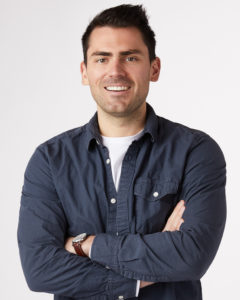
WEHL: How did you go from the idea to getting the company up and running? What were the best and most challenging parts of the early days running the business compared to where you are now?
DE: Lots of reaching out to friends & family and anyone else that would talk to us about the idea. We wanted to get it in front of as many people as we possibly could to understand if we had something that might stick. At the beginning, it was challenging to get the word out there. Really though, that doesn’t change, it’s just the size of the problem. Then, getting the word out there meant selling 10 more shirts and planting 100 more trees; now, getting the word out there means selling 1,000 more shirts and planting 10,000 more trees.
WEHL: We’re hearing the term “sustainable fashion” more and more these days. What does “sustainable fashion” mean to tentree?
DE: For us, sustainable fashion has an inherent problem in that “sustainable” really just means doing “less bad”. For us, we really believe in our ability to use product as a vehicle to “do good”. We believe in creating the most ethical and good-for-the-planet product as we possibly can but, by ultimately using that product to give back to the planet, we’re trying to take the idea of sustainability one step further.
WEHL: You use “eco-friendly materials” to make your clothing. What are the main fabrics you use and why are they considered eco-friendly?
DE: Our Crown Materials are materials that tick all of our high sustainable standards, and we feel great knowing our customers are wearing not just what’s best for them but also for the planet.
TENCEL™ is made of responsibly sourced wood pulp, and produced in an entirely “closed-loop” process. This means its solvents are captured and reused, and no contaminants are released into the environment. TENCEL™’s wood and pulp originates from natural forests and sustainably managed plantations.
Recycled Polyester: Using recycled polyester fibers in our garments help give single-use plastic bottles a new life, and one that isn’t toxic to our planet. By keeping PET bottles from landfills, we use less energy to produce our garments than conventional manufacturing. By diverting plastic bottles from landfills, we can keep toxic chemicals from contaminating our natural resources, and reduce our dependence on petroleum based products. 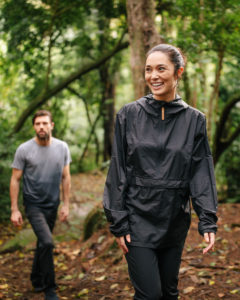
Organic Cotton: Conventional cotton production uses up to 16% of the world’s insecticides, and 7% of herbicides. These chemicals are then washed out of soils, polluting rivers and damaging the environment. Organic cotton is grown with minimal use of harsh chemicals, ensuring safe and healthy working conditions for farmers and their families. Very minimal harsh chemicals are used, which reduces water contamination and pollution, keeping waters safe for people and wildlife.
Hemp: Hemp uses far less water than conventional cotton and yields far more fibre. By using hemp in our fabrics and blends, we are actively being kinder to our soil and ultimately, kinder to ourselves. Grown sustainably, organically, hemp can naturally restore soil fertility and revitalize contaminated soils. Compared to conventional cotton, hemp can be grown and harvested using far less land and water while producing more fibers per acreage.
WEHL: What does “ethical manufacturing” mean?
DE: tentree is proud to be a certified B-Corporation. This means we uphold the highest regard and respect for our employees, communities, and our environment. We’re committed to minimizing our environmental impact, uplifting the well-being of our people with ethical labour rights, and safe workplaces, and recognizing our social responsibility to keep our business practices as transparent as possible.
We approach every step of our business with these guardrails, and this includes our partners and suppliers. With these pillars of ethics and principles, we ensure that all the people who work with tentree are respected, valued, and feel safe. Before any form of production can begin, we require all of our suppliers to sign and adhere to the these guidelines. We also require routine audits to ensure their continual commitment to our code of conduct.
WEHL: For every item of clothing sold, you plant ten trees. How many trees have you planted so far and what is your goal for the future? Tell us a little about how the process is interactive for customers.
DE: We’ve planted over 40 million trees to date, with a mission to plant 1 billion trees by 2030. Every tentree item comes with a code, which represents the ten trees the customer is planting. When you register this code on tentree.com, you will have visibility to the country that the trees are being planted in, the type of tree being planted, the impact that these trees are making on the environment, as well as the communities we’re supporting in the countries we plant in. 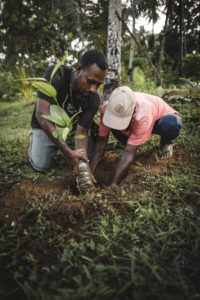
WEHL: Which countries do you plant trees in?
DE: We’re currently active in Madagascar, Mexico, Canada, Indonesia, Senegal, Nepal and Peru. Historically we’ve also planted in Ethiopia, India, Cambodia and the US to name a few.
WEHL: Our wellness and the wellness of our planet are so closely intertwined. Why is planting trees so important to the wellness of our planet? How can it help combat climate change?
DE: Planting trees is one of the most important missions today when it comes to combating climate change. It’s by no means the only one and it’s not a silver bullet. That said, it’s an incredibly important tool in our toolkit for what is going to require a number of measures to be taken. When it comes to our own personal wellness, taking care of the planet is so important. With all of the talk about mental health, our addiction to technology and more, nature is often sought as one of the most important things to help us disconnect and reconnect.
WEHL: You are a certified B Corporation; what inspired you to get this certification? What are a couple of the things you do differently as part of this certification?
DE: For us, we are doing everything we can to have an impact through our product and our give-back mission. That said, we are always looking for other ways to ensure we are living our values. B-Corp has allowed us to have a framework to measure how we’re doing good beyond just planting trees. It also allows us to benchmark ourselves against how we were 3 years ago and other organizations as well.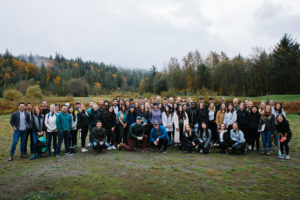
WEHL: How does wellness translate into your business practices, the culture of your workplace, and the day to day life of your employees?
DE: Wellness at work for us is all about ensuring that every day our team comes to work knowing how their efforts are impacting the lives of thousands of people all across the globe. Everything we do, we try to bring back to that ideal.
WEHL: What is your personal philosophy on wellness?
DE: Wellness for me is about balancing the demands and stresses of building a high growth business while trying to find time to disconnect. For me, that comes through fitness and getting out in nature.
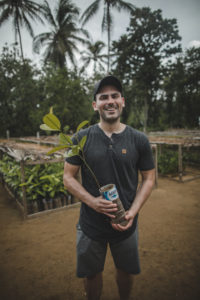 WEHL: How do you prioritize wellness in your life and find work-life balance?
WEHL: How do you prioritize wellness in your life and find work-life balance?
DE: Not very effectively…
WEHL: Research continues to prove that spending time in nature is good for our health. What are your top 3 favourite places to spend time in nature in Canada?
DE: Whistler, Saskatchewan Lakes, and Grouse Mountain
WEHL: What do you love about being a Canadian company?
DE: The people and the support. We have been incredibly fortunate that we started the business in Canada and, in particular, in Saskatchewan. We were surrounded by a community that was incredibly supportive and wanted us to succeed!
WEHL: Do you have any advice for an entrepreneur who’s interested in building a socially and environmentally conscious business?
DE: Embrace the fallibility. When you’re trying to do good, it’s often easy to forget that no one is perfect and that there is power in progress. It’s about working towards being better, not being perfect.
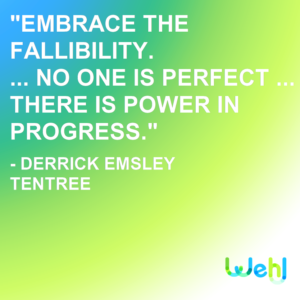 WEHL: In addition to making purchases from environmentally and socially-conscious companies, what are 5 actions we can take to live a more “sustainable” life?
WEHL: In addition to making purchases from environmentally and socially-conscious companies, what are 5 actions we can take to live a more “sustainable” life?
DE: The ones I’m trying to do right now: Eat more plant-based. Use less plastic. Ride your bike to work or use public transit more. Carry a reusable bottle with you everywhere. Buy less!
Connect with Derrick Emsley and tentree:
- Web: tentree.ca
- Email: [email protected]
- Wehl Platform: @tentree
We invite you to join our all-in-one healthy lifestyle app at Wehl.com!


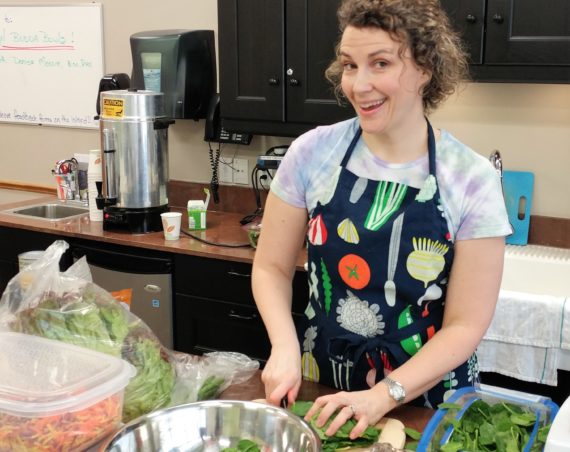
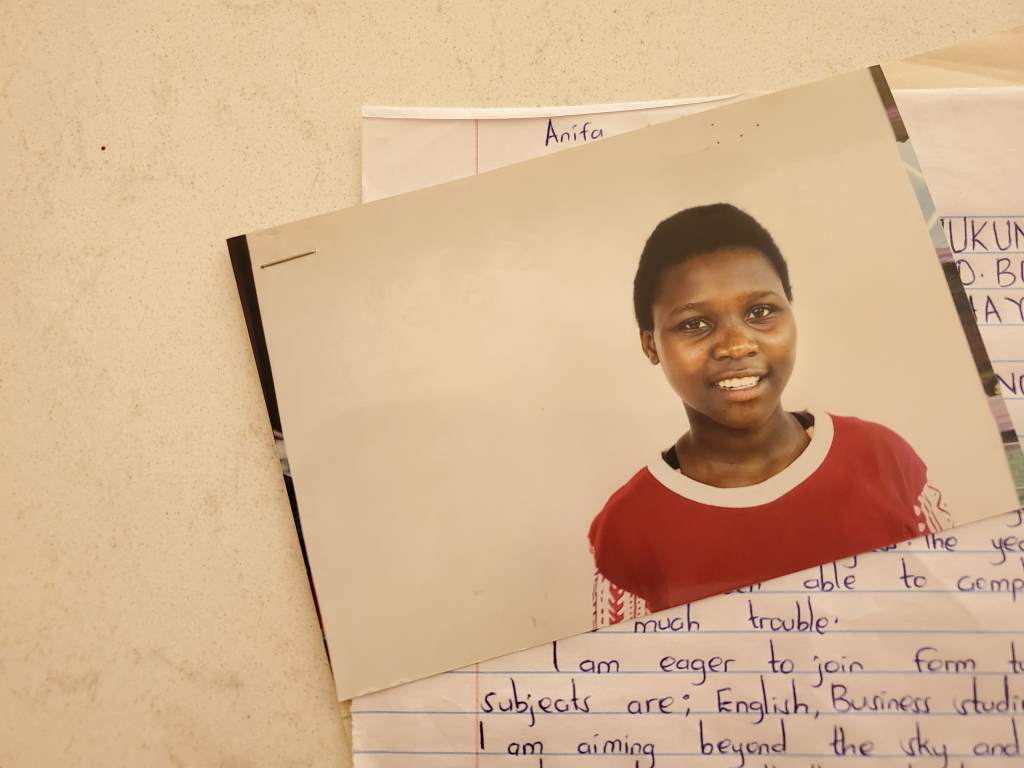
1 Comment
Sherika
This was a great read! It’s heartwarming that there are still organizations out there actively caring about the planet and not just focused on profit.